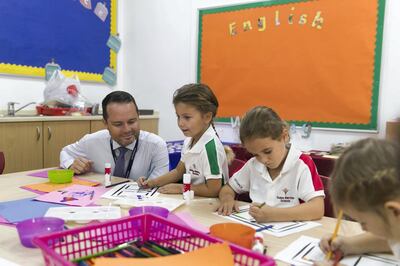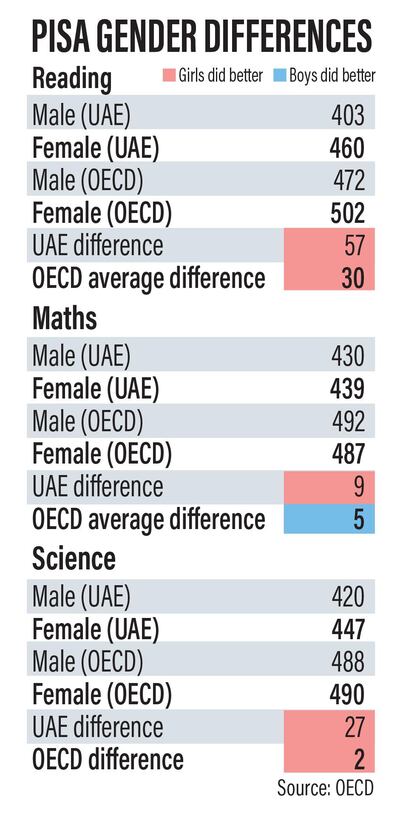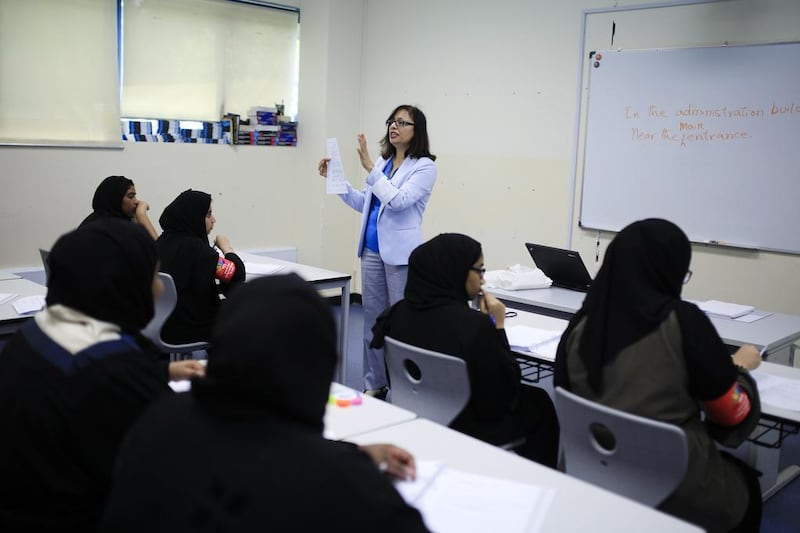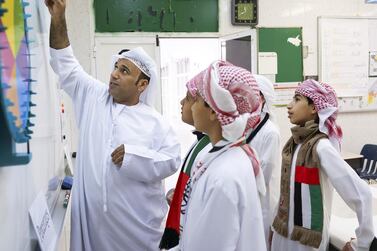Teenage girls are significantly outperforming boys in UAE schools - with global education rankings revealing the country has one of the widest gender gaps in the world.
An analysis of the influential Pisa figures, compiled by the Organisation for Economic Co-operation and Development (OECD) and published this week, shows a stark contrast between the academic achievements of 15-year-old female pupils and their male counterparts.
Of the 79 countries and territories that took part in the assessments, the UAE had the second largest gap in reading abilities between the genders, with UAE girls outperforming boys by 57 points on the scoring matrix used by Pisa. Across the OECD, the average gap was 30 points.
In maths, girls in the UAE scored nine points higher than boys on average, bucking a trend which saw boys do better globally by five points.
Meanwhile, in science, girls in the UAE achieved, on average, 27 points more than boys, the fourth largest gap recorded. On average across the OECD, girls performed just two points better.

Globally, the latest rankings left the UAE 50th in maths, 46th in reading and 49th in science for 2018, broadly maintaining its position in 2015. Under the UAE’s national agenda, it is planned that the country will enter the top 20 when the Pisa assessments next take place, in 2021.
Brendon Fulton, executive principal of Dubai School, said 'bridging the gap' between attainment levels of boys and girls was a key priority for schools.
“Girls are significantly outperforming boys in reading and science, and even bucking the OECD trend by outperforming boys in maths," said Mr Fulton.
"Bridging the gap between different groups of learners has been a high priority for school leaders in the UAE and I suspect many schools will be trying to understand how pervasive this trend is, if at all.”
Iain Colledge, executive principal at Raha International School in Abu Dhabi, was keen to reflect on the reasons behind the continuing success of female pupils.
"We see a lot of girls who are incredibly committed to their studies, and their passion and drive shows through in these results," he said.
"I think girls are seeing far broader career opportunities and are more motivated as a result."
However, he also cautioned against judging education systems on Pisa results alone, particularly in light of the diversity in UAE education sector.
“The demographics and the range of schooling styles is vast, and that does make a difference,” he said. “In this country the diversity of the population and the school systems and curricula is possibly the biggest in the world.

“I understand a desire to go up the rankings but I think there is more for all countries to consider than just being high up a Pisa table, because their curriculum, and education outlook, is based on a lot more than just testing reading, maths and science.”
The difference between the most and least able students has also widened, the Pisa report said, leading its authors to express concern about a widening equality gulf in UAE schools.
While the top-performing pupils have improved their scores significantly since the UAE began participating in the rankings in 2009, there has been a drop of a similar scale among the least able.
Schools across the country, which receive reports on their own performance in Pisa, would be analysing the results to ensure results improved in future, school principals told The National.
However, they also warned against reading too much into the league tables, which they said could offer useful information but did not give a definitive picture of educational standards.
“The government will undoubtedly do a thorough analysis and continue to drive the National Assessment Programme,” said Rashmi Nandkeolyar, principal and director at Delhi Private School in Dubai. “Everyone will have to do better than the previous result. Teacher training, student awards and leadership collaboration are some ways this can happen.”
Although overall average scores among UAE school children for 2018 improved in maths compared to 2015, the last time the Pisa assessments took place, they fell back slightly in reading and science.
“The UAE is such an aspirational country that even a small dip is disappointing,” Ms Nandkeolyar said. “However, in the larger context, there could be variables such as selection of students, participation from more schools, some of which have not been in the loop for a long time. It must be said that the UAE is bound to catch up with its innovative programmes and driven agenda. The UAE is a new entrant and practice will make perfect.”
Across the UAE, students sat mock exams to prepare them for the Pisa tests, in a sign of how seriously they are taken by the government. Across the UAE, more than 19,000 15-year-olds took part, with the process designed to include a representative sample of students.
Ms Nandkeolyar said a high number of UAE students who were educated in their none-native language could help explain the lack of progress in reading. According to the Pisa report, more than 40 per cent of the UAE students assessed did not speak the language they are taught in at home, one of the highest rates in the world.







